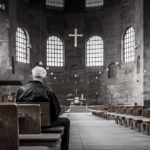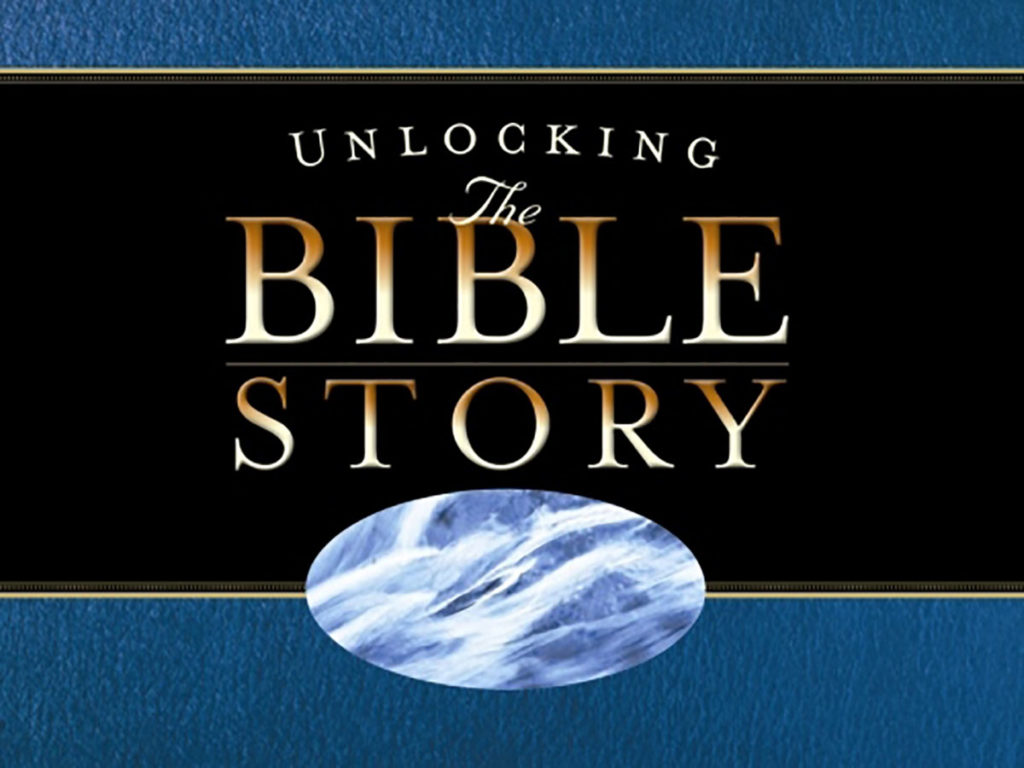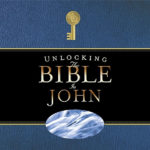
Spirit
John 16:4–15
4 But I have said these things to you, that when their hour comes you may remember that I told them to you.
The Work of the Holy Spirit
“I did not say these things to you from the beginning, because I was with you. 5 But now I am going to him who sent me, and none of you asks me, ‘Where are you going?’ 6 But because I have said these things to you, sorrow has filled your heart. 7 Nevertheless, I tell you the truth: it is to your advantage that I go away, for if I do not go away, the Helper will not come to you. But if I go, I will send him to you. 8 And when he comes, he will convict the world concerning sin and righteousness and judgment: 9 concerning sin, because they do not believe in me; 10 concerning righteousness, because I go to the Father, and you will see me no longer; 11 concerning judgment, because the ruler of this world is judged.
12 “I still have many things to say to you, but you cannot bear them now. 13 When the Spirit of truth comes, he will guide you into all the truth, for he will not speak on his own authority, but whatever he hears he will speak, and he will declare to you the things that are to come. 14 He will glorify me, for he will take what is mine and declare it to you. 15 All that the Father has is mine; therefore I said that he will take what is mine and declare it to you.
(ESV)
NextSome people who are reasonably clear about God the Father and God the Son are quite confused when it comes to God the Holy Spirit. We understand that without the Father, the Son would never have been sent into the world. We can see that without the Son there would be no sacrifice on the cross, no empty tomb, and we could not be saved. But what if there was no Holy Spirit? What difference would that make? How important is this third person of the Trinity?
Imagine a man who is fabulously wealthy. His name is Stavros, and over the years he has amassed billions of dollars.
When Stavros dies, his lawyer opens the will. It’s a lengthy document, running to hundreds of pages, and the beneficiaries are all over the world. Each of them has to be found and told about the legacy, and according to the terms of the will, every one of them has to be brought to Stavros’s home in order to receive what has been promised. The lawyer has his work cut out for years to come.
The Bible tells us that Christ has purchased a marvelous inheritance for us. Through His death and resurrection, He has opened the way for us to be reconciled to God and to enter everlasting life. The will of God has been signed by the Father and sealed by the Son. But what has been signed and sealed still needs to be delivered.
It is one thing for a gift to be offered; it is another for that gift to be received. And all that Christ has done will be useless and of no value to us until we receive what He offers.
So how can the will of God be delivered to us? The answer is by the Holy Spirit. The Holy Spirit brings what Jesus has accomplished on the cross and applies it personally to us.
Without the Spirit of God, salvation would remain a theoretical possibility, but it would never become a reality for anyone. If there were no Holy Spirit, no one would arrive in heaven. Without the Spirit, all that Jesus has done would be like a will that was never read, a gift that was never opened, an inheritance that was never enjoyed.
God’s Disturber of the Peace
Christ offers forgiveness of sin, righteousness from above, and deliverance from the judgment to come. But most people do not feel that they need what Christ offers. That is why the first work of the Holy Spirit is to disturb our peace. “When he [the Holy Spirit] comes, he will convict the world concerning sin and righteousness and judgment” (John 16:8).
Think about opening a can of paint. You would probably use a screwdriver or some other kind of lever to pry the lid open. Round the edge of the can there is a rim that functions as a pivot for the lever. If there were no rim, there would be nothing for the lever to pull on. A lever has to pull on a pivot.
The gospel is like a lever, and it depends on an awareness of sin as its pivot. If a person has no sense of sin, the gospel will have no “pull” in that person’s life. And it will be like a lever without a pivot.
The gospel works when the Holy Spirit creates a sense of sin within us, and that is why His first work is to disturb us by convicting us of sin. Discovering your sin is the first step in finding peace with God.
God’s Three Alarm Clocks
The first work of the Holy Spirit is to show us what’s wrong, so that we will see our need and be ready to listen to the gospel. This is never comfortable. Nobody likes to be wakened when they are sleeping, but if your house is on fire, you will be grateful to the person who warns you.
The Holy Spirit disturbs us, not because He is against us but because He sees the position we are in—and He loves us too much to leave us there. You have to get out from where you are! Don’t you see the danger you are in? Sin and righteousness and judgment! You cannot stay there!
My wife, Karen, and I have three alarm clocks in our bedroom. The first one wakens us gently with music. The second is set for a few minutes later in case we sleep through the first one, and it is more disturbing. The third is set later still, and it is a last resort if all else fails. It makes a horrendous sound, and the day begins much better if we are up before its deafening blast.
God has three ways to intercept sin in a person’s life. You could think of them as three alarm clocks. The first is the gentle work of God’s Spirit opening up your conscience and revealing what’s wrong so that you can change it.
If you sleep through that, the Holy Spirit may speak more loudly and directly. That’s what happened to David. God exposed his sin through the prophet Nathan. It became public knowledge, and at that point, David turned to God in repentance.
If a person ignores God’s second alarm, his or her situation becomes perilous. That is what happened to Pharaoh. God sent Moses to him, but Pharaoh refused to listen to God’s command, even when he was confronted directly. He continued to harden his heart, and eventually Pharaoh came under the judgment of God.
Consider these three alarms: the quiet work of God’s Spirit in opening the conscience, God exposing a secret sin, and the direct judgment of Almighty God. Which of these three would you like God to use to wake you up?
Showing us our sin is the first work of the Spirit. Thank God it is not His last. He awakens us to our sins, but He never leaves us there.
Turning on the Floodlight
When a building is floodlit, you can see its beauty. But without the floodlight, its beauty would be hidden in the darkness.1 The Holy Spirit is like a floodlight shining on Jesus. He illuminates the truth that without Him we would not see. He opens our understanding to see who Jesus is and what He has accomplished.
Jesus said, “When the Helper comes he will bear witness about me” (John 15:26). “He [the Holy Spirit] will glorify me, for he will take what is mine and declare it to you” (16:14). Like the floodlight, the Holy Spirit does not focus on Himself; He directs our attention to Jesus.
The Holy Spirit has a beautiful ministry. He shows us our need of a Savior, and He shows us that Jesus is the Savior we need. Then He brings the two together. The Holy Spirit is heaven’s matchmaker. He brings us to Christ and joins Christ to us, so that everything Jesus accomplished on the cross becomes ours.
The Holy Spirit Is a Person
Speaking about the Holy Spirit, Jesus said, “I will ask the Father, and he will give you another Helper [or Counselor], to be with you forever” (14:16). Notice that Jesus does not say, “I will send you help.” He says, “I will send you a Helper.” For three years, Jesus had been the disciples’ counselor, and the Holy Spirit would continue to be all that Jesus had been to them.
The Holy Spirit is as much a person as the Father and the Son, so we should not think of Him simply as a power or force. The Bible speaks about lying to the Holy Spirit and grieving the Spirit (Acts 5:3; Ephesians 4:30). You cannot lie to a force, and you cannot grieve a power. A burst of energy could never be to the disciples everything that Jesus was.
Jesus told His disciples, “I am going to the Father,” (John 14:12), but “I will ask the Father, and he will give you another Helper, to be with you forever, even the Spirit of truth” (14:16–17). But then Jesus said, “I will come to you” (14:18). The presence of the Spirit with the disciples would mean that Christ Himself was truly with them.
Then Jesus said something even more astonishing: “If anyone loves me, he will keep my word, and my Father will love him, and we will come to him and make our home with him” (14:23). So where the Spirit is, both the Father and the Son will make their home.
You cannot know the Father apart from the Son, or the Son apart from the Spirit. It is through the Son that the Father has made Himself known, and it is the Holy Spirit who brings us to Jesus.
“In” and “With”
Jesus used two words to describe our relationship with the Holy Spirit: “He dwells with you and will be in you” (14:17). The Holy Spirit is with us. There is a distinction here. So don’t fall into the trap of confusing what you think and say with the mind of the Spirit. Wise Christians will allow others to test what we say. The Spirit is with us, and we often need Him to correct us.
Jesus also said that the Spirit would be in the disciples. There is a union here. The Spirit is more than a mentor who shows us what to do and then leaves us to do it. He dwells in us, and His presence makes the Christian life possible.
Jesus said, “It is to your advantage that I go away, for if I do not go away, the Helper will not come to you,” (John 16:7). This clearly meant that the disciples, who had been with Jesus for three years, would be given more. Jesus had been with them, but now by the Spirit, He would be in them.
It is natural for us to think that we have less than the first disciples who followed Jesus. But Christian believers have more. The Holy Spirit—the Spirit of Jesus Himself—lives “in” you. That’s more, not less!
Opened
God the Holy Spirit is the third person of the Trinity, and His ministry is central to our salvation. We could not be saved without the work of the Son of God on the cross, and we would not be saved without the work of the Spirit of God in our hearts.
The Holy Spirit disturbs us so that we see our sin and grasp our need of the Savior. And as He disturbs, He also illuminates so that we can see the glory of Jesus. If you have come to faith in Jesus Christ, God’s Spirit lives in you (1 Corinthians 6:19; 12:13). So don’t ever say that you can’t change.
Notes:
1. I owe the illustration of the floodlight to Dr. J. I. Packer. See Packer, Keep in Step with the Spirit (Old Tappan, NJ: Revell, 1984), 65ff.
- What role does the Holy Spirit play in our salvation?
- What is the Holy Spirit’s first work in a person’s life? What has been your experience of this?
- What are God’s three ways of waking people up? Are you personally aware of God using any of these in your own life?
- The Holy Spirit is like a floodlight, shining on Jesus. What is one thing about Jesus that you’ve come to see clearly through your study of the Bible?
- Respond to the statement: “He [the Holy Spirit] dwells with you and will be in you.”
Free Resources







